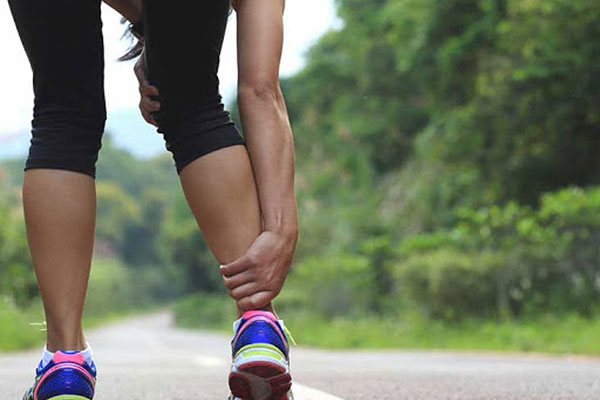Prime
Covid-19 scars: Survivors battling arthritis

Health workers attend to a Covid-19 patient in an ICU at Mulago National Referral Hospital early 2021. PHOTO/ PROMISE TWINAMUKYE
What you need to know:
- 60% affected: The percentage of the elderly population in Uganda that has arthritis, according to specialists at Mulago hospital.
Health specialists have reported an increase in cases of arthritis among Covid-19 survivors and the general population.
The experts say the increase in arthritis cases could be as a result of widespread inflammation in the body caused by Covid-19 infection and the lockdowns which increased sedentary lifestyle –one of the risk factors.
ALSO READ: Treat your arthritis in time
Arthritis is a disease which manifests with knee or back pain, swelling and tenderness in joints and can cause disability when left untreated, thus hampering one’s productivity.
Mr Chris Kalibala, a resident of Kampala, is one of the affected persons. He started experiencing excruciating pain in his lower back after a Covid-19 infection last year.
Mr Kalibala is currently undergoing physiotherapy at Mulago Specialised Women and Neonatal Hospital, following a recommendation from an orthopaedic specialist.
“When I came here last month, I was unable to bend forward. I have had back pain and pain around my waistline for a while. However, after suffering from Covid-19 around September last year, the pain increased,” he said in an interview at the hospital last week.
Physiotherapists at the Mulago and Nakasero hospitals told this newspaper that chronic knee and back pain signal arthritis, a disease which results from wear and tear of joint surfaces.
Ms Susan Akori, a senior physiotherapist at the Mulago hospital, told this publication that they are handling “seven to 10 cases per pay, which is double the number we were handling in the previous years.” But the increase in cases of arthritis has also been witnessed at Nakasero hospital.
Mr Isaac Kakooza, a senior physiotherapist at the facility, said they are handling around six cases of arthritis per day, higher than an average of three cases they were handling per day in 2018.
This information is similar with that contained in a 2021 report from Egypt’s Ain Shams University, which found that the “prevalence of post-Covid arthritis was 37 percent. Ankle, knee, and wrist were the most commonly affected joints.” There is no national study done in Uganda to understand the burden.
Cause
“During Covid-19, when people stayed home for a long time, most of them were not active as they used to be. Some of them put on weight, for others, the muscles became weak because they were not active,” Mr Kakooza said.
He added: “That weight could have become too much and by the time they went back to work, their joints were straining more thus increasing the risk of developing arthritis or worsening the condition for those who had it before Covid-19.”
The expert also said Covid-19 can increase arthritis-related pain because of the inflammation it causes in the body. The inflammation caused by Covid-19 has also been found to have long-term effects on the functioning of the lungs and the kidneys.
The two experts recommended that one should come to the hospital if the back pain continues for more than a week.
“Some back pain goes away by itself. If there is an acute pain that affects walking, you have to come to the hospital immediately,” Mr Kakooza said.
He explained that back pain can result from facet joint arthritis, which affects the joints of the backbones.
“Imagine someone sits in the office for 12 hours and then sits in the car and even at home they do the same thing. They don’t do any type of activity. Remember, all that weight is supported by the back but also the core muscles of the back become weak because of the sedentary lifestyle. That can put someone in danger,” he said.
The expert said sportsmen and people whose jobs involve long hours of standing are also at increased risk of developing arthritis. “When they get any injury with their knee, the structure of the knee is compromised and this predisposes them to arthritis. There are many types of arthritis.
Dr Norbert Orwotho, a consultant orthopaedic surgeon at Mulago hospital, explained that besides age, some people have inborn problems which predispose them to the risk of experiencing early wear and tear.
“Ligament problems, which are corrected through arthroscopy, can come from accidents or extreme exercises,” he said.
The expert said patients spend around Shs30m to get total knee replacement to get relief from the disease and resume a normal life.
There are 400 physiotherapists in the country, raising questions about the availability of experts to handle the increasing cases.
The experts are in urban and higher hospitals, and yet many people in rural areas seek care at lower facilities such as health centre IV, III and II which are near them.




